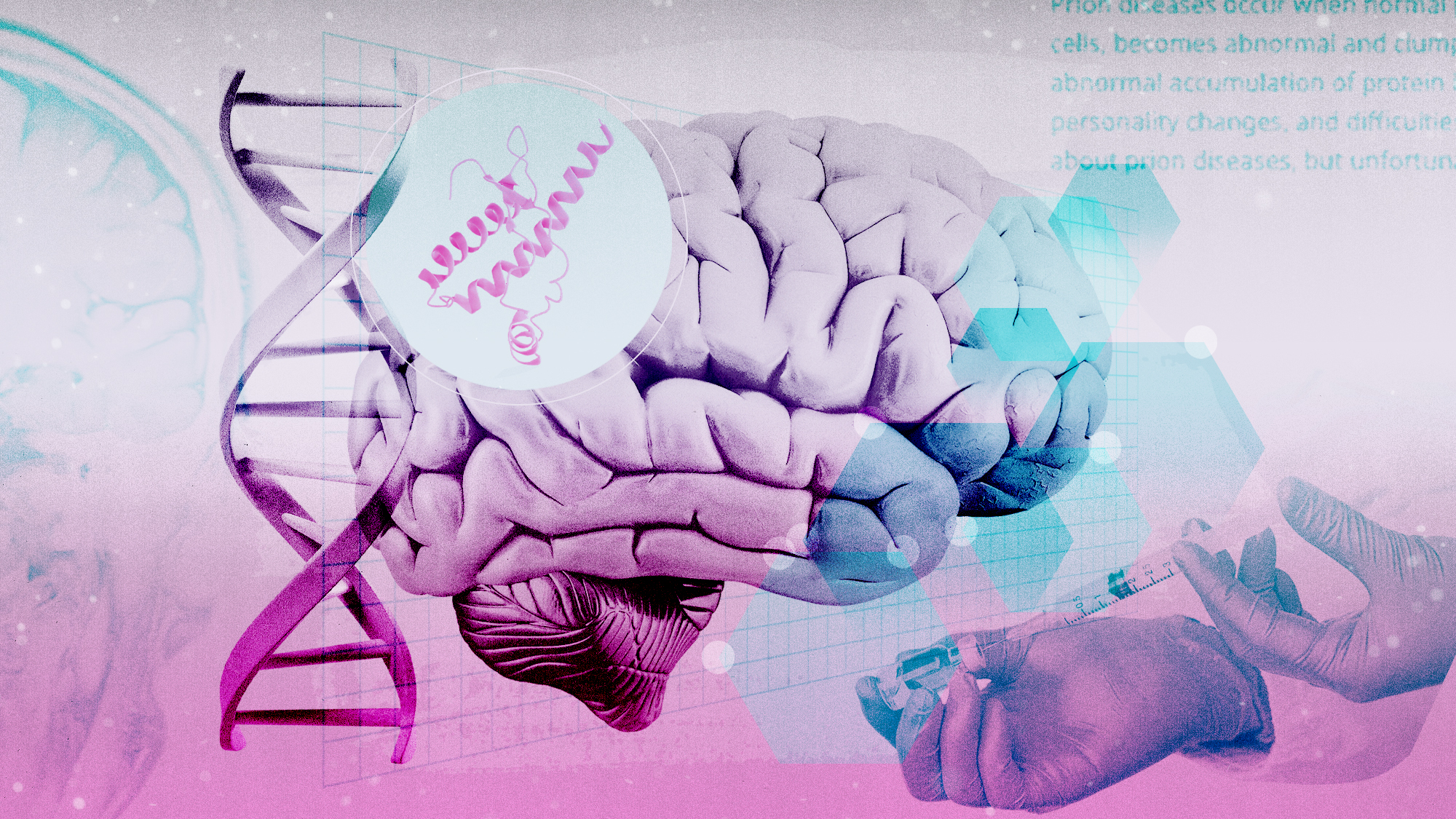How the transmission of Alzheimer's might be possible
New research links dementia cases to injections of human growth hormone from deceased donors' brains

A free daily email with the biggest news stories of the day – and the best features from TheWeek.com
You are now subscribed
Your newsletter sign-up was successful
Scientists believe that a rare medical treatment withdrawn in the 1980s may have caused some very rare cases of Alzheimer's.
Research published in the Nature Medicine journal suggests the individuals acquired a "rogue protein" that causes dementia from a growth hormone taken from the brains of deceased people, said Sky News.
Although the findings do not mean that Alzheimer's is infectious, the results could have significant implications for our understanding of dementia.
The Week
Escape your echo chamber. Get the facts behind the news, plus analysis from multiple perspectives.

Sign up for The Week's Free Newsletters
From our morning news briefing to a weekly Good News Newsletter, get the best of The Week delivered directly to your inbox.
From our morning news briefing to a weekly Good News Newsletter, get the best of The Week delivered directly to your inbox.
What did the study discover?
Researchers studied eight people in the UK who, as children, received cadaver-derived human growth hormone (c-hGH) that had been extracted from the brains of human corpses.
At least 1,848 people received the c-hGH between the 1950s and 1980s. Some died from Creutzfeldt-Jakob disease (CJD), a degenerative brain condition, because the hormone infusions they received contained infectious proteins called prions that cause severe abnormalities in the brain. Prions are proteins that act like "seeds" of disease, explained Live Science, causing healthy proteins to "fold in abnormal, harmful ways".
The new findings indicate parallels between the evolution of Alzheimer’s and CJD. None of the eight patients in the new study had developed CJD, but five showed symptoms consistent with early-onset Alzheimer's. In three of the patients, biological and autopsy studies supported an Alzheimer's diagnosis, and they were suggestive in a fourth.
Is Alzheimer's transmissible?
Alzheimer's disease is "the most common cause of dementia in the UK", said the NHS. An estimated one in 14 people over the age of 65 has Alzheimer's and other types of dementia, rising to one in six over the age of 80.
A free daily email with the biggest news stories of the day – and the best features from TheWeek.com
Alzheimer's is thought to be caused by the abnormal build-up of proteins in and around brain cells.
"We are not suggesting for a moment that you can catch Alzheimer's disease," said Professor John Collinge, of University College London’s Institute of Prion Diseases, as it is "not transmissible in the sense of a viral or bacterial infection".
Instead, said Live Science, the seed transfer linked to the Alzheimer's cases reported in the new study occurred in a "very specific and extraordinary medical context". And while "in theory", accidental transmissions of Alzheimer's seeds "could be possible in other medical procedures", steps are being taken to avoid any future repeats.
Dr Richard Oakley, associate director of research and innovation at Alzheimer's Society, told Science Media Centre that there was "no cause for concern for the health of the general population", and reiterated that the hormone treatment had not been used since 1985.
Are the results definitive?
No, said Science News. Researchers "can't be certain" that contaminated growth hormone caused these people's Alzheimer's. It is possible that "the underlying childhood conditions that necessitated the growth hormone treatments", or "other medical procedures such as radiation", contributed to early Alzheimer's or cognitive problems.
What are the implications?
As well as preventing similar transmissions, experts hope the findings might increase the understanding of dementia.
"One question is what can be done to stop such transmissions in future," said The Economist, and another is what the findings "might mean for treating Alzheimer's, even in people in whom the disease develops spontaneously".
The findings are a potential boost for research into diagnostics and therapies to combat all forms of dementia, as they might open up new treatment possibilities for a disease that is currently incurable.
The study has "revealed more about how amyloid fragments can spread within the brain", Dr Maëva May, associate director of research at the Stroke Association, told Science Media Centre. This provides "further clues on how Alzheimer's disease progresses and potential new targets for the treatments of tomorrow".
Chas Newkey-Burden has been part of The Week Digital team for more than a decade and a journalist for 25 years, starting out on the irreverent football weekly 90 Minutes, before moving to lifestyle magazines Loaded and Attitude. He was a columnist for The Big Issue and landed a world exclusive with David Beckham that became the weekly magazine’s bestselling issue. He now writes regularly for The Guardian, The Telegraph, The Independent, Metro, FourFourTwo and the i new site. He is also the author of a number of non-fiction books.
-
 6 of the world’s most accessible destinations
6 of the world’s most accessible destinationsThe Week Recommends Experience all of Berlin, Singapore and Sydney
-
 How the FCC’s ‘equal time’ rule works
How the FCC’s ‘equal time’ rule worksIn the Spotlight The law is at the heart of the Colbert-CBS conflict
-
 What is the endgame in the DHS shutdown?
What is the endgame in the DHS shutdown?Today’s Big Question Democrats want to rein in ICE’s immigration crackdown
-
 ‘Zero trimester’ influencers believe a healthy pregnancy is a choice
‘Zero trimester’ influencers believe a healthy pregnancy is a choiceThe Explainer Is prepping during the preconception period the answer for hopeful couples?
-
 ‘Longevity fixation syndrome’: the allure of eternal youth
‘Longevity fixation syndrome’: the allure of eternal youthIn The Spotlight Obsession with beating biological clock identified as damaging new addiction
-
 Scientists are worried about amoebas
Scientists are worried about amoebasUnder the radar Small and very mighty
-
 Metal-based compounds may be the future of antibiotics
Metal-based compounds may be the future of antibioticsUnder the radar Robots can help develop them
-
 Stopping GLP-1s raises complicated questions for pregnancy
Stopping GLP-1s raises complicated questions for pregnancyThe Explainer Stopping the medication could be risky during pregnancy, but there is more to the story to be uncovered
-
 Choline: the ‘under-appreciated’ nutrient
Choline: the ‘under-appreciated’ nutrientThe Explainer Studies link choline levels to accelerated ageing, anxiety, memory function and more
-
 RFK Jr. sets his sights on linking antidepressants to mass violence
RFK Jr. sets his sights on linking antidepressants to mass violenceThe Explainer The health secretary’s crusade to Make America Healthy Again has vital mental health medications on the agenda
-
 Nitazene is quietly increasing opioid deaths
Nitazene is quietly increasing opioid deathsThe explainer The drug is usually consumed accidentally